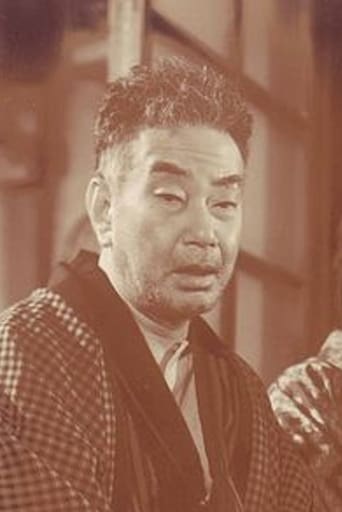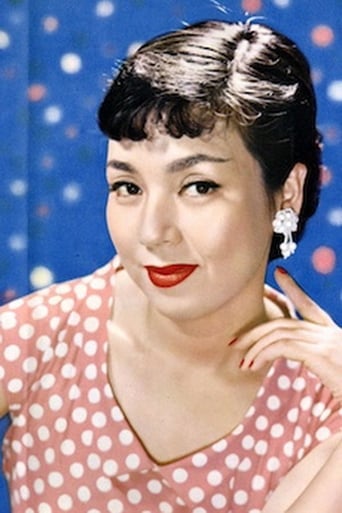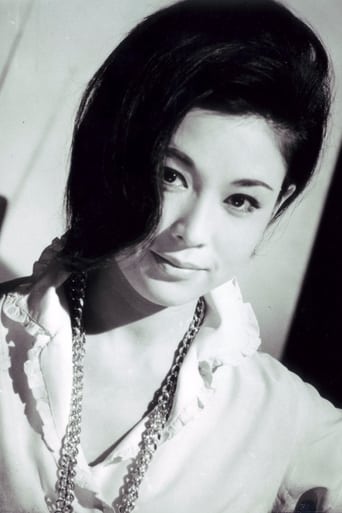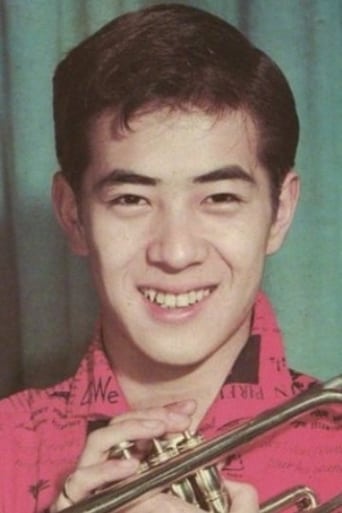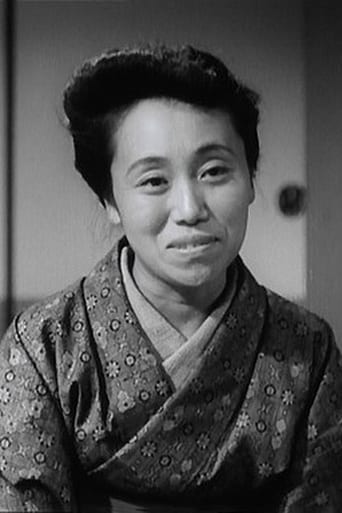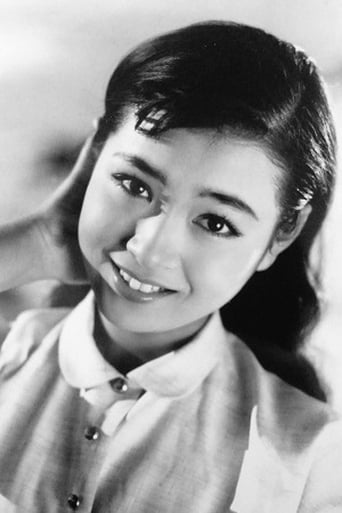Lucybespro
It is a performances centric movie
Crwthod
A lot more amusing than I thought it would be.
Maidexpl
Entertaining from beginning to end, it maintains the spirit of the franchise while establishing it's own seal with a fun cast
Zandra
The movie turns out to be a little better than the average. Starting from a romantic formula often seen in the cinema, it ends in the most predictable (and somewhat bland) way.
alexdeleonfilm
FLOATING WEEDS -- OZU 1959. image1.jpego Revival viewed at the Encore Theater in Hollywood, in 1975 on a double bill with Kurosawa's Dlodeskaden. Original review published in Rafu Shimpo, Los Angeles Japanese daily newspaper. Film number two of the evening, truly a stroke of programming genius, was Ozu's virtually unknown 1959 masterpiece "Floating Weeds" (Ukigusa). Also in color this is one of Ozu's most powerful films, yet, for some strange reason it has never been shown in this country outside of museums or obscure college series screenings. The film stars Ganjiro Nakamura, a remarkable actor of Kabuki background and one of the great old men to be seen on film. Ganjiro is the eternal "sukebei" -- the lovable, strong-willed "dirty old man" -- a role in which he has no peer. In this picture he has two mistresses, a young one, Machikyo Kyo (of Rashomon and Ugetsu fame) who is an actress in his traveling Kabuki troupe, and an older one played by Haruko Sugimura, who is surely one of the best actresses of all time, anywhere. In addition he has a daughter, Ayako Wakao, by mistress number two, and thoroughly disapproves of her boy friend (Hiroshi Kawaguchi). At the time Wakao was Daiei's reigning female box office star, with her fresh ravishing beauty and all around radiance. Here she is paired with the dominant Japanese actress of a decade earlier, Kyo, who was still very attractive and still going strong. The film deals with the conflicts arising out of these relationships and the resulting effect on the career of the old actor. The confrontation between mistresses Machiko and Haruko with Machiko screaming her defiance at the old man, who has just thrown her out into a driving rain storm, is one of the most powerful scenes in the entire, normally gentle, Ozu repertoire. This film, a major Daei release of 1959, lensed by master cameraman Kazuo Miyaguchi and produced by legendary film mogul Masaichi Nagata, is truly a neglected gem not to be missed if it ever comes your way. NOTE: This film was the enhanced supercharged remake of Ozu's own prewar Black and white Ukigusa, which came out in 1934. The name Wakao means "Young Tail" !
Andres Salama
Floating Weeds from 1959 is a film from Yasujiro Ozu's final period, and also one of his first in color. He told the story before, in 1934, only that was a black and white silent film. But he followed the plot of the first film very closely.The story has a mediocre traveling Kabouki troupe reaching a small port village in Southern Japan to perform. Their performances only attract a few townspeople, but to Komajuro (Ganjiro Nakamura), the troupe's leader, the visit is an important occasion to meet his old lover, Oyoshi (Haruko Sugimura) and their grown child Kiyoshi (Hiroshi Kawaguchi), who is about to enter college and believes Komajuro is his uncle. When Komajuro's current lover, the pretty Sumiko (Machiko Kyo) learns about this, she blows in rage, and persuades another actress of the troupe, the pretty Kayao (Ayako Wakao) to seduce Kiyoshi. Kayao succeeds in the mission, so much so that she falls in love with Kiyoshi. When Komajuro learns about their relation, he doesn't take it so well (Komajuro repeatedly beating Sumiko and Kayo while shouting to them "you slut" are scenes that would probably not be filmed today), especially since he wants his son to have a life above that of a traveling acting troupe.This is not the very best of Ozu (I put the so called Noriko trilogy there, one of the crowning heights of cinema) but is still very good. There are a lot of Ozu's characteristic style to watch here (the camera put at a knee's height, the so called pillow shots, etc). The movie includes a famous scene with Komajuro and Sumiko fighting and arguing over a street where the rain is pouring. The performances are terrific, especially those of Nakamura and Kyo. Chishu Ryu, who was in dozens of Ozu's films, has a bit role here as the theater manager.
Jackson Booth-Millard
I knew that this Japanese film was listed in the book 1001 Movies You Must See Before You Die, but I didn't know some of the critics did not rate it very highly, I saw one review giving it two stars out of five, so with the book inclusion was interested to see what I would think, from director Yasujirô Ozu (Tokyo Story, An Autumn Afternoon). Basically, set in the summer of 1958, at a seaside town in the Inland Sea, there is the arrival of a troupe of travelling players, headed by lead actor and owner Komajuro Arashi (Ganjirô Nakamura) the other players promote their acts. Komajuro goes to visit old flame Oyoshi (Haruko Sugimura) who had a son with him, Kiyoshi Homma (Hiroshi Kawaguchi), but the grown up son who works in the post office believes the visitor is his uncle, not his father. Komajuro's current mistress and lead actress Sumiko (Machiko Kyô) becomes jealous of her lover being with his old flame, and so that she cannot say anything to ruin him he takes her away and breaks up with her. To get some kind of revenge Sumiko pays fellow pretty and young troupe actress Kayo (Ayako Wakao) to seduce Kiyoshi, after initially refusing she does give in to this, and in the long time they spend together she does actually fall for the son, and she tells him the truth, he says it does not matter. Komajuro confronts Kayo when he finds out the couple are engaged, she says it is no longer for money from Sumiko, and angry he goes to talk to Sumiko, who refuses any kind of reconciliation, and with business bad he decides to break up the troupe and for them to play one last night. Oyoshi persuades him that if he is leaving soon that he should tell Kiyoshi about his true parentage, he agrees, but angry to see him and Kayo together he has a violent moment and beats them both, and he leaves without saying much at all. Kiyoshi is prepared to talk to and forgive Komajuro, but he leaves before he gets the opportunity, and on the train Komajuro happens upon Sumiko who has nowhere to go, so they reconcile and decide to go to Kuwana together. Also starring Kôji Mitsui as Kichinosuke and Chishû Ryû as Theatre Owner. The cast and the direction was fine, I can see why critics say it is the less memorable of the films from Ozu, it is not a terrible film, but is certainly does not have much interesting material, besides the unknown father and son storyline I was not always paying attention, so overall it is a moderately alright drama film. Okay!
bobsgrock
Ozu's remake of his 1934 silent film establishes its own independence and importance with the opening shot, which consists of a lighthouse in the background and a sake bottle in the foreground against a backdrop of a gorgeous blue sky. Within this singular shot, Ozu shows the beauty and artistry which color film allowed him to partake of as well as the further establishment of his unique visual style, enhanced by the now limitless color palette he could enjoy.In this case, a simple story about a traveling kabuki troupe visiting a small seaside town reveals certain traits and themes which appear in almost every Ozu film. A man trying to reconnect with his old lover and son affects his current mistress and the end result is a quiet, pensive evocation of looking at human relationships and life itself. For any fan of Ozu's previous work, this film is perhaps the culmination of his craft.


